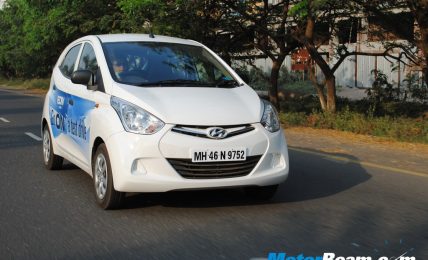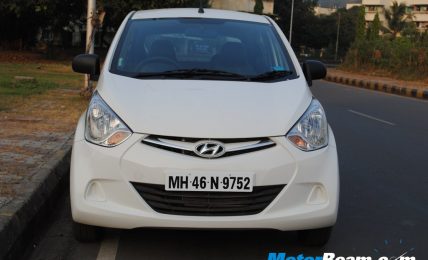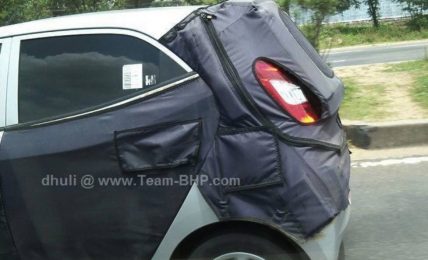Text – Faisal Khan; Pictures – Ankit Mishra
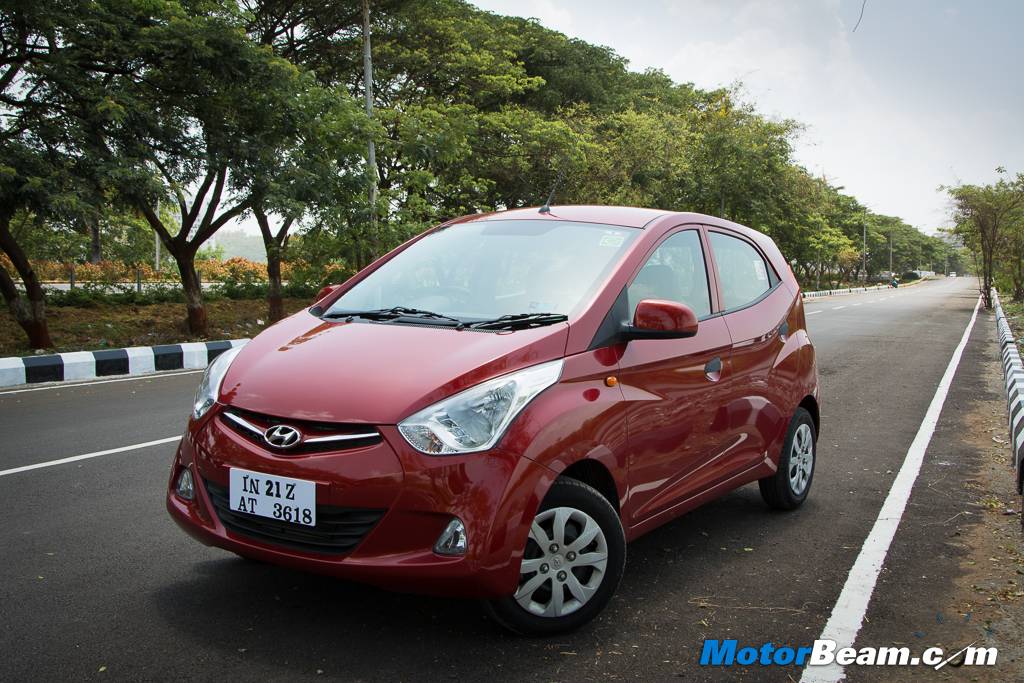
Hyundai Eon 1.0 Review
Car Tested: 2014 Hyundai Eon 1.0
Price OTR Mumbai: Rs. 4,54,350/-
The bigger engine in the Hyundai Eon gives it the much needed performance boost.
Small cars are very popular in India and to counter Maruti Suzuki’s dream run in the entry-level A-segment, Hyundai launched the Eon in 2011. The impact of the Eon was immediately apparent, within no time it became Hyundai’s best selling model in India while Maruti Suzuki could feel the heat and had to update its bread and butter model, the Alto, which was being sold unchanged for more than a decade. Everybody who drove the Eon was impressed by the car, Hyundai engineers (the car was jointly developed by the company’s R&D centres in Korea and India) had done a fantastic job of packaging everything so well in this small size that this entry-level automobile never felt basic or cheap. However, there was always one gripe, the 800cc engine which produces 55 BHP of power and 75 Nm of torque, made the Eon feel a bit underpowered. To address the issues of performance, Hyundai has plonked in a bigger 1.0-litre motor in the Eon, sourced from the European i10 and Kia Picanto.
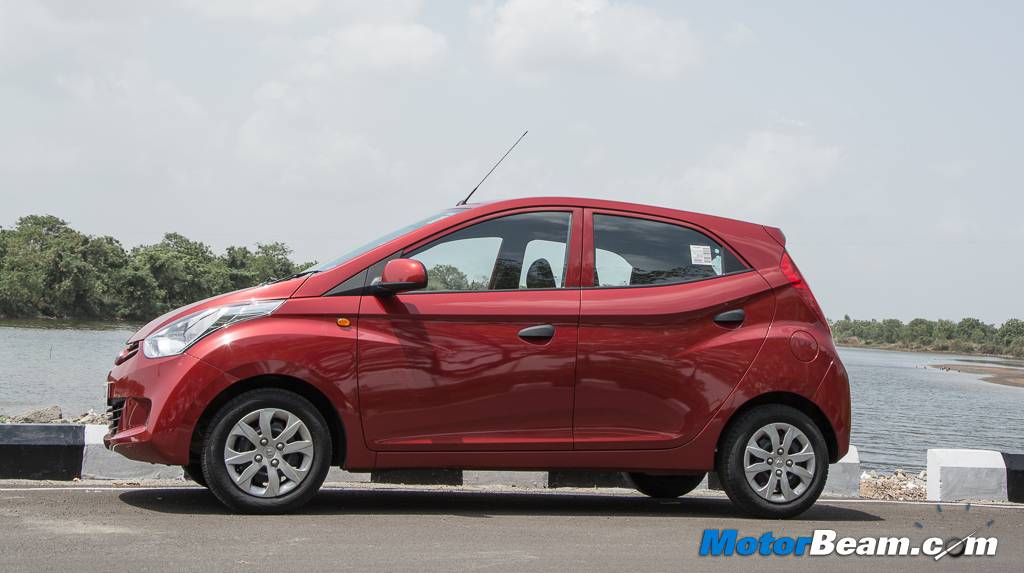
Exteriors – While many expected Hyundai to give the Eon a minor nip and tuck, the company has refrained from making any changes to the styling of the vehicle. The Eon is identical to its 0.8-litre engined sibling and the only giveaway on the outside is the 1.0-litre badging on the boot and the slightly different wheel covers. There is a Kappa badge above the front fender (on the right side only) and that’s about it. The Eon continues to be a cute and attractive vehicle, smooth flowing lines and that Fluidic styling rubs off well to give it an appeal of its own. Compact it might be but it definitely looks more expensive than it actually is.
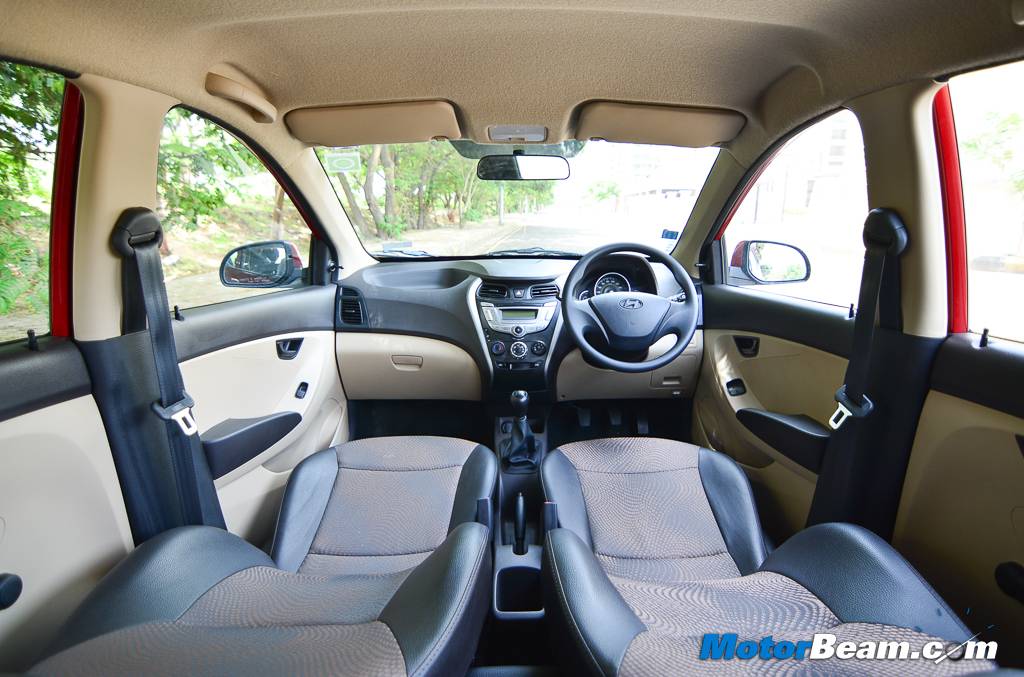
Interiors – The same feeling of looking more expensive than it actually is rubs off on the inside as well. You step inside a cabin which looks rich and plush, it just doesn’t look entry level here. Hyundai has not only designed the cabin to be well laid out and appealing, the company has also managed to offer outstanding levels of quality on a car which is positioned as an entry-level offering. Fit and finish is excellent and so is everything inside the cabin, which is well put-together and devoid of rattles or squeaks, things quite often seen in entry-level cars of this price point.
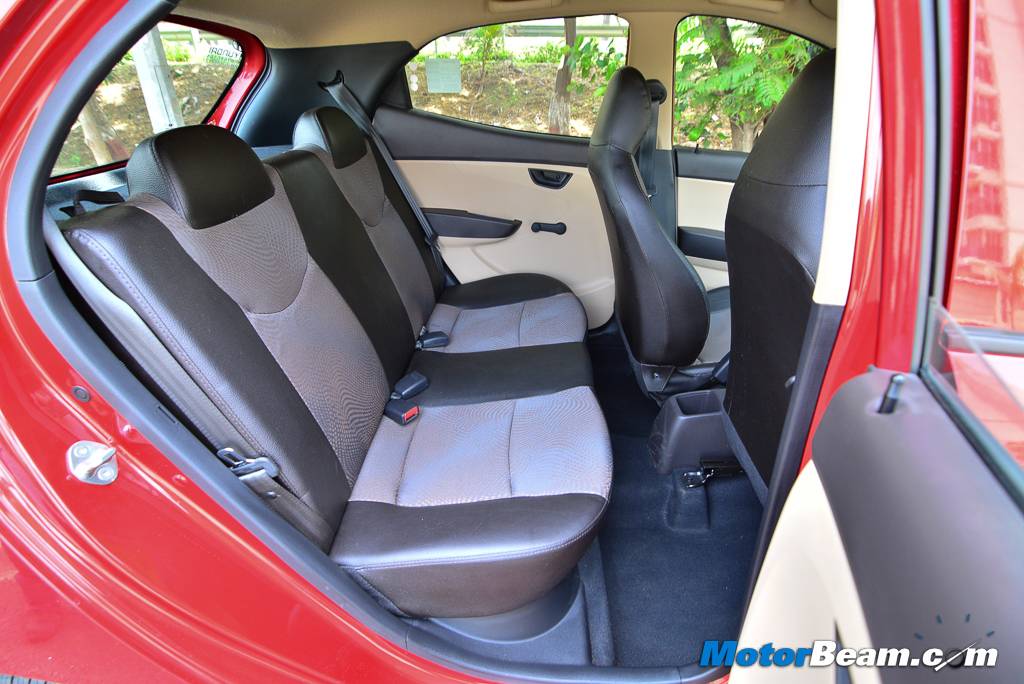
The Hyundai Eon has fixed headrests for all seats. Front seat comfort is good but the low height of the headrests is a bother for tall people as it falls a bit short for them. Rear seat has average space at best but the boot is big enough and the vehicle is decently loaded with keyless entry, internally adjustable rearview mirrors and a gearshift indicator. Our test car also came with a music system with AUX and USB connectivity, this isn’t standard but shouldn’t cost much to fix at the dealer end. There are small yet significant storage bins inside the cabin, including in front of the handbrake on the centre console and a big cavity to store things above the glovebox on the dashboard.
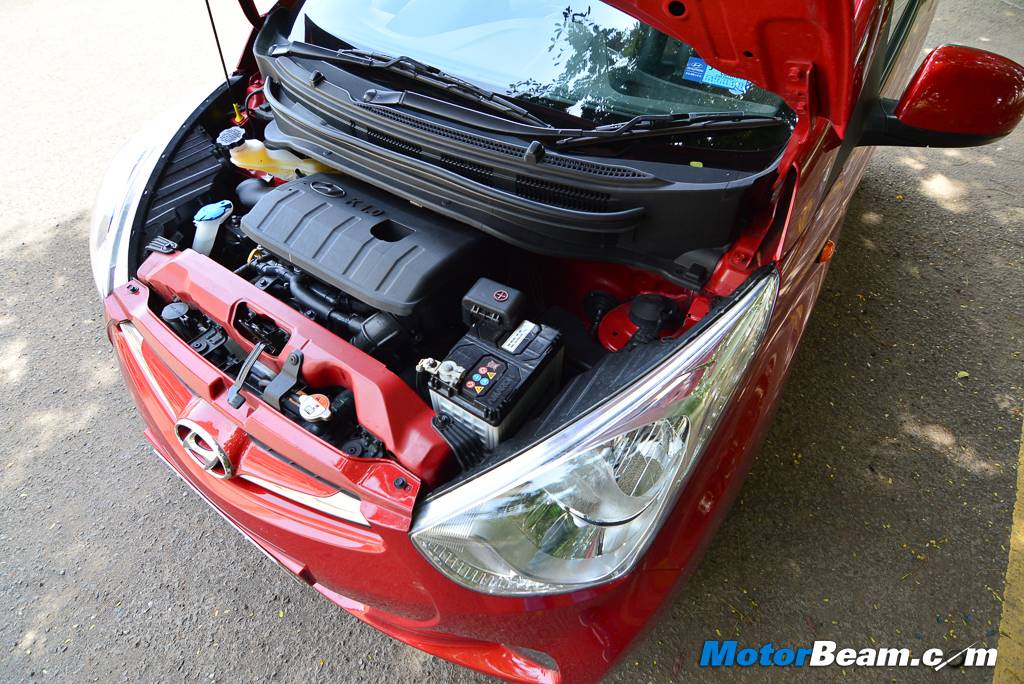
Performance – The major change and the only change being solicited since a long time now is the new 1.0-litre, 3-cylinder Kappa mill. This 12-valve DOHC unit gets variable valve timing (VTVT in Hyundai speak) and uses an aluminium head and block. The overall output is now 69 PS at 6200 RPM and 94 Nm at 3500 RPM, a noteworthy hike from the 814cc powerplant. As you would expect, the boost in performance is immediately apparent as soon as you get going, the larger hearted Eon feeling much more eager and doesn’t bog down even with AC turned all the way up and four passengers sitting inside.
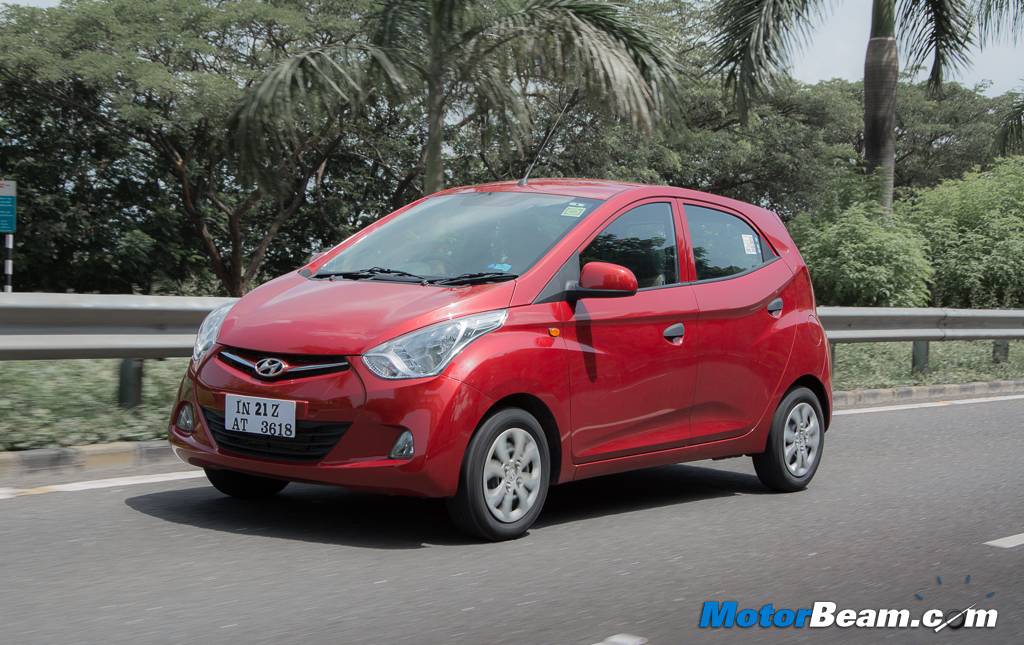
Hyundai has tried to reduce the NVH of the car and has used a low friction timing chain. The Eon’s 0.8-litre motor does vibrate at idle and feels jerky at low speeds but that has been eliminated to quite an extent with the higher powered version. Still there are very minor vibes at idle and the same can be felt near the redline but the reduction in NVH over the regular Eon is drastic. There is very good performance on offer now and even part throttle inputs work well to gather good pace, the light weight of the car helping to quite an extent. Low-end performance is good and the mid-range is strong as well but you do have to stretch it to get to the top of the powerband, which gets noisy.
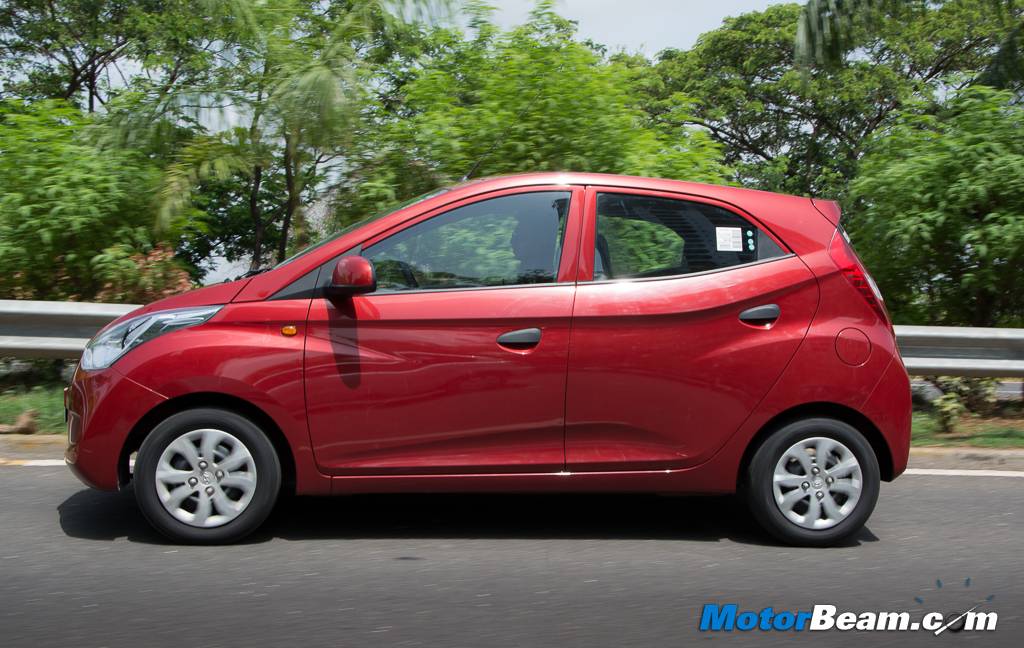
The 5-speed gearbox offers slick shifts and the clutch is light too. The gearing itself is on the taller side and first gear is good enough for around 40 km/hr, second for 85 km/hr and third takes you all the way to 130 km/hr, no signs of breathless-ness whatsoever. Our VBOX shows the Eon 1.0 does the 0-60 km/hr sprint in 5.63 seconds, while the 0-100 km/hr time is 13.28 seconds, which is very quick indeed. Top speed is close to 150 km/hr but progress post 130 km/hr is slow. The ARAI claimed mileage is 20.3 km/l and this Hyundai should return around 15 km/l in real world conditions.
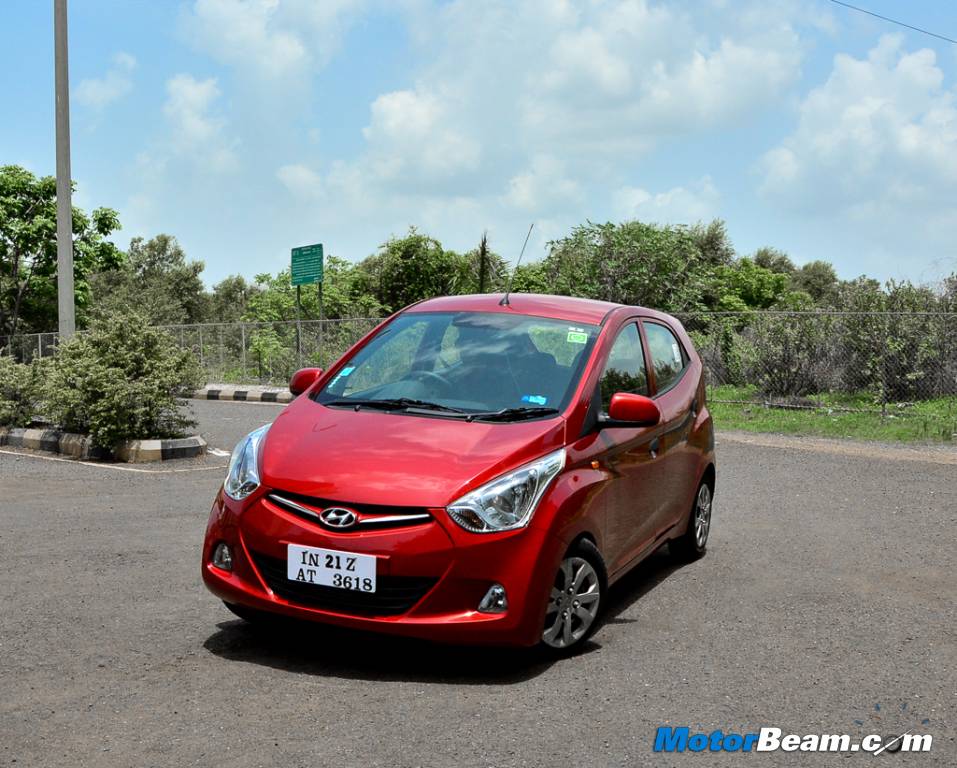
Driving Dynamics – The old Eon wasn’t a handler and the new one is no different. The steering is light at low speeds but just doesn’t weigh up at high speeds and that really robs away confidence even at 80 km/hr. In fact, the steering is so numb at high speeds that there is almost no feedback felt by the driver, this is simply not the car to drive enthusiastically. The brakes are strong though but again, the car doesn’t maintain its line on hard braking and twitches a lot. Ride quality is good, the suspension is softly sprung which makes the Eon bob at high speeds, robbing away stability and bad bumps do unsettle passengers. For city speeds though, the Eon’s suspension is more than up for the task to insulate all that’s thrown at it.
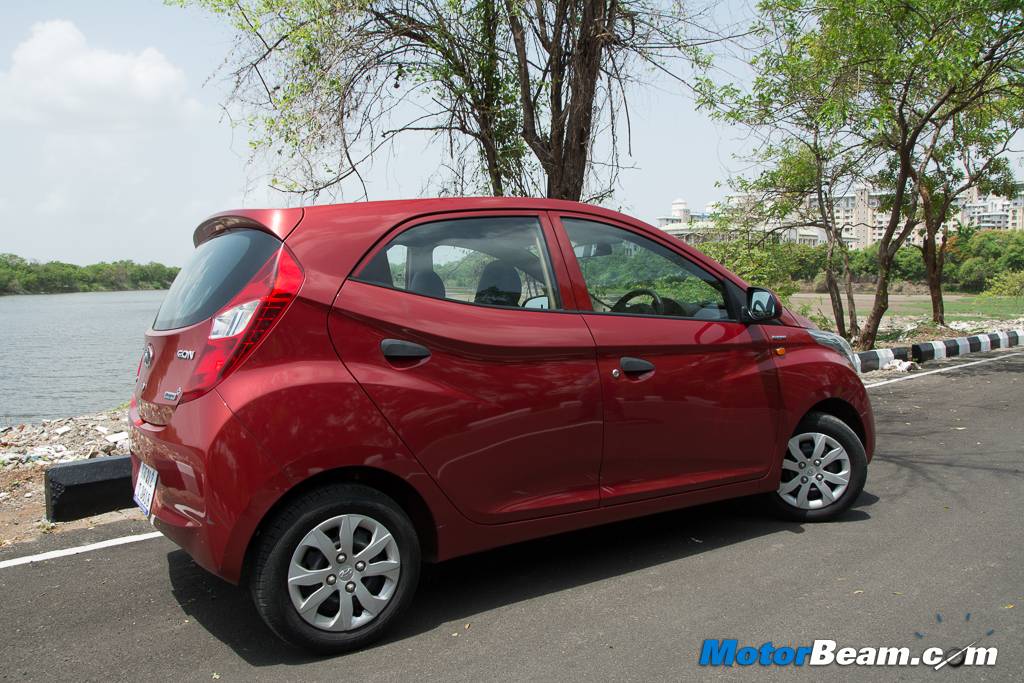
Verdict – The Hyundai Eon has always made for a fine entry-level car but the lack of power did hurt those who were regularly driving over inclined roads or carrying occupants with them. With the boost in power, the Hyundai Eon makes a much stronger case for itself. Sure it is far from polished in the dynamics department and the rear seat lacks much space but when you look at the big picture, you simply can’t deny this car offers you more than your money’s worth, in terms of visuals (exterior and interiors). Only offered in Magna+ trim, the 1.0-litre Eon costs Rs. 34,000/- more than the 0.8-litre version in the same variant. For the extra money you pay, you get drastically better performance which transforms the experience of driving this car significantly.
The Hyundai Eon’s biggest flaw was the lack of power and the 1.0-litre VTVT Kappa mill resolves that completely. The Eon with this new engine makes for a fine buy for a first time car buyer.
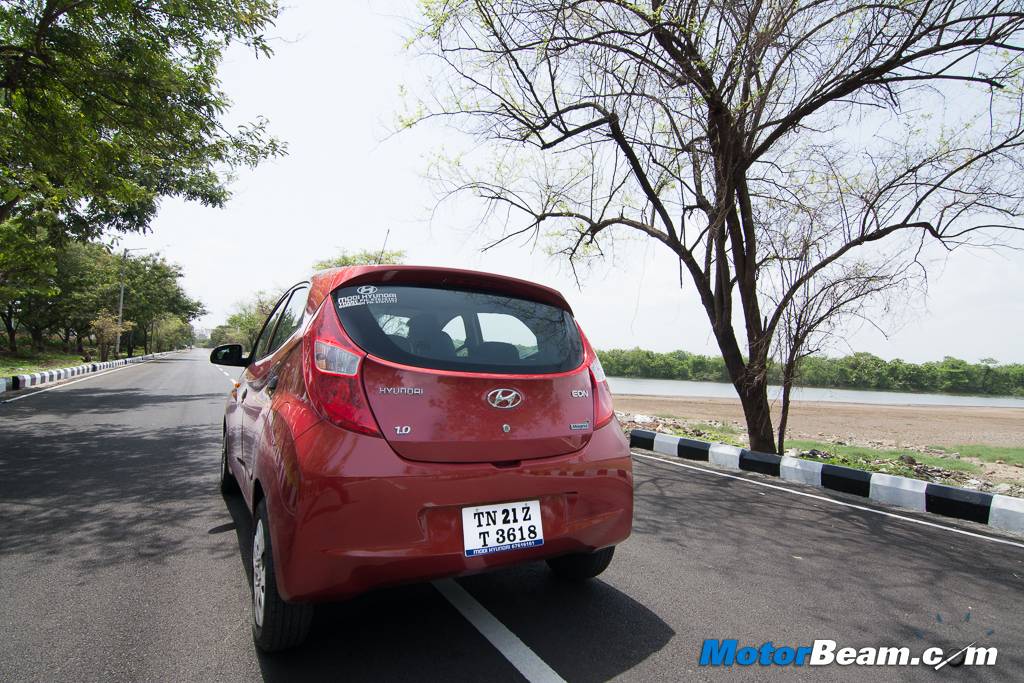
What’s Cool
* Styling
* Interiors
* Performance and reduced NVH
What’s Not So Cool
* Dynamics


